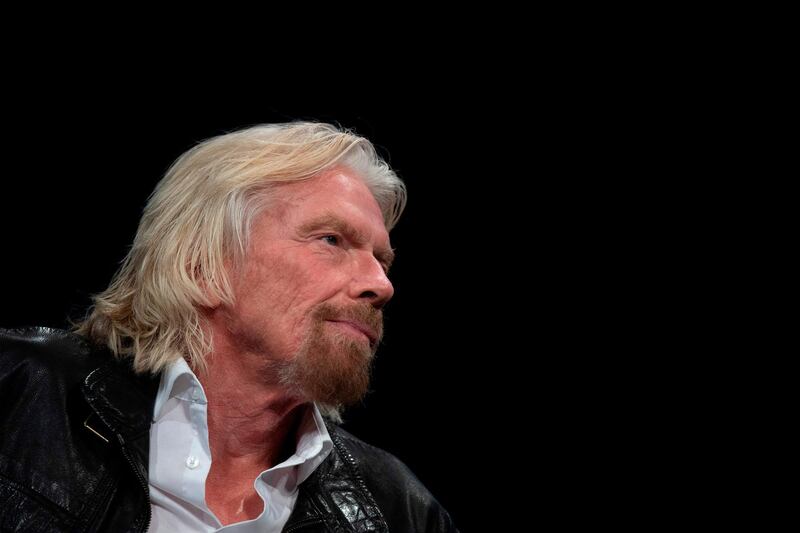Sir Richard Branson and American technology guru Sean Parker are heading to Abu Dhabi this week as part of a high-level summit aimed at addressing some of the region’s most pressing challenges.
Water security, the refugee crisis and rising youth unemployment are all topics under the microscope as the Milken Institute’s MENA summit returns to the city.
The two-day summit on Tuesday and Wednesday will feature a host of local and international speakers, from health chiefs to philanthropists.
George W Bush attended last year's inaugural gathering, which saw the former United States president take a subtle aim at some of Donald Trump's policies.
“We are at a time of some global uncertainty,” said Katie O'Reilly, executive director of the Milken institute, a non-profit think tank based in America.
“Lots of things such as traditional power dynamics are shifting, while dominant industries are changing.
“That also means there is a tonne of opportunity. We aim to provide perspective by highlighting those areas of opportunity and advance discussion about the challenges.”
One area of focus is the environment. Climate change, pollution and land reclamation are wreaking havoc on the Middle East’s flora and fauna.
Razan Al Mubarak, managing director of the Environment Agency Abu Dhabi, will speak on this theme, looking at some of the efforts in the Middle East to drive sustainability.
Another issue is the youth unemployment crisis facing the Middle East in the wake of the Arab uprising. Rates of joblessness among young people in the region stand at 31 per cent.
A panel on Tuesday, chaired by Mina Al-Oraibi, editor in chief of The National, will examine what governments are doing to create more opportunities for the region's youth.
The summit will also feature an appearance by Mr Parker. As a teenager, he co-founded the Napster file-sharing website which disrupted the very fabric of the music industry.
The company was famously sued by Metallica and was eventually shut down, but many consider it to be the pioneering precursor to sites such as iTunes and Spotify.
Mr Parker went on to become the founding president of Facebook, the social networking site, and he is now a philanthropist.
He will be among those speaking on how countries can harness personal data to find cures to diseases, support healthy aging, and solve other public health challenges.
Tackling what is widely seen as an international mental health crisis, the reconstruction of war-torn Middle East countries, and whether space travel can ever become a viable business are also expected to be discussed over the two days.
Khaldoon Al Mubarak, chief executive of investment company, Mubadala, and presidential special envoy to China, will also lead a session charting the current global outlook, while Noura Al Kaabi, Minister of Culture and Knowledge Development, will speak about culture and soft power.
For Ms O'Reilly, the summit provides a forum that could lead to real change in policy.
“I think [change] is really tough to do in a vacuum. It’s hard to do it without talking – that’s the reason we don’t have speeches, we don’t really do keynotes and instead have panel discussions so no-one can say something in public without being challenged.”
Mr Bush’s visit to the UAE last year came just over a decade after his state visit in 2008.
That year he became the first - and so far only - sitting US president to visit the country.








